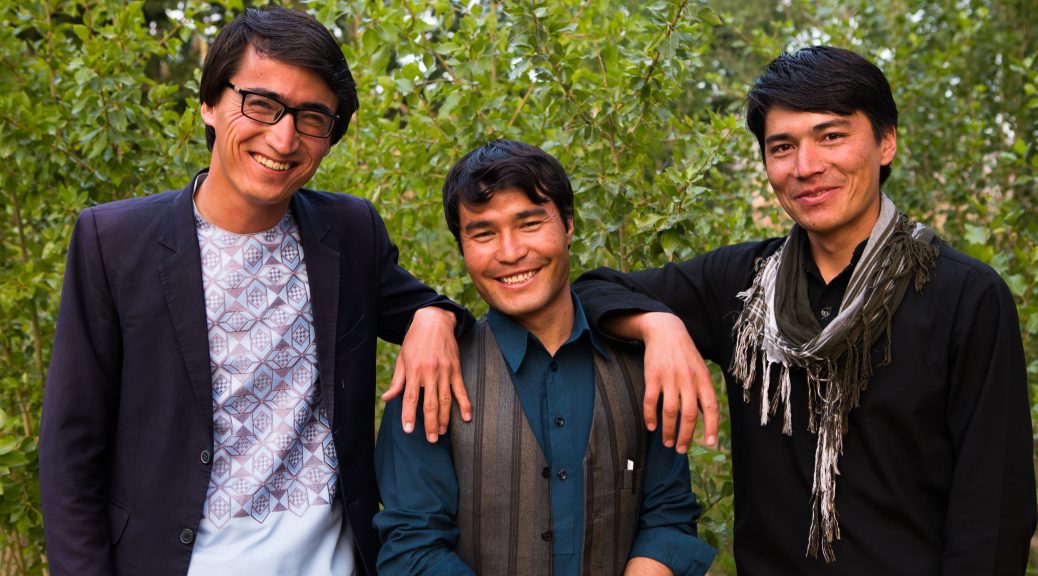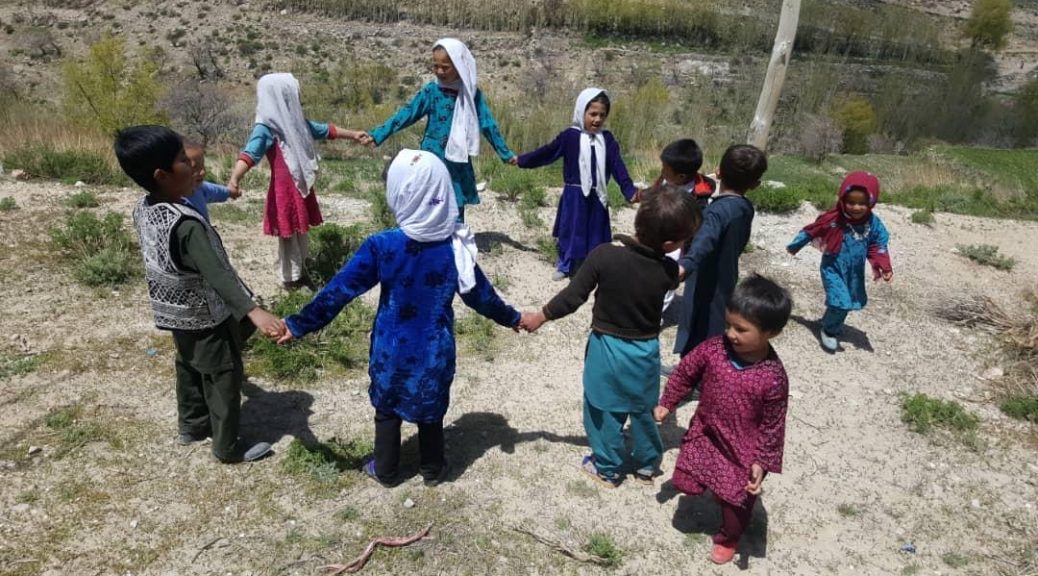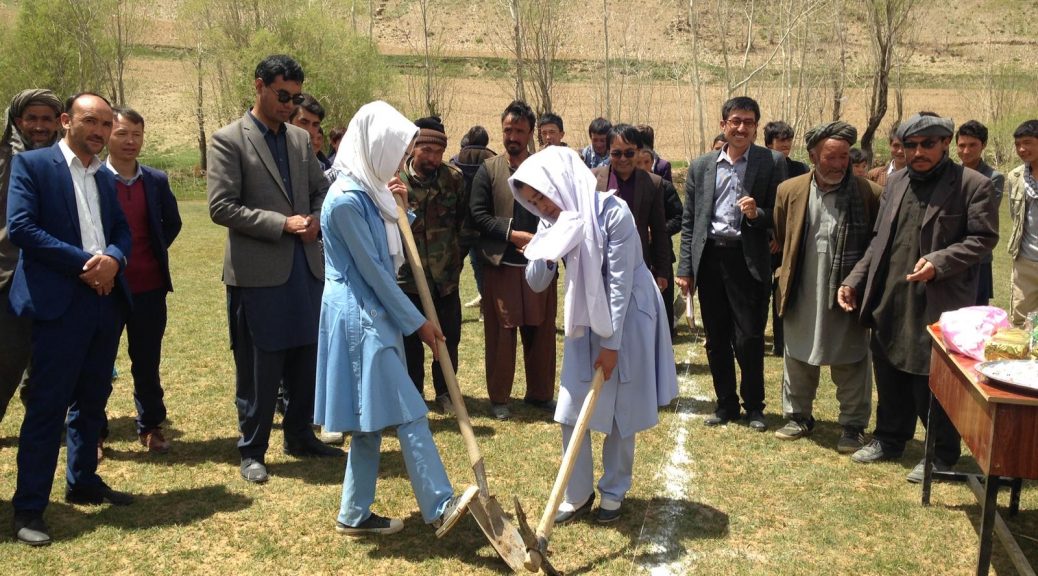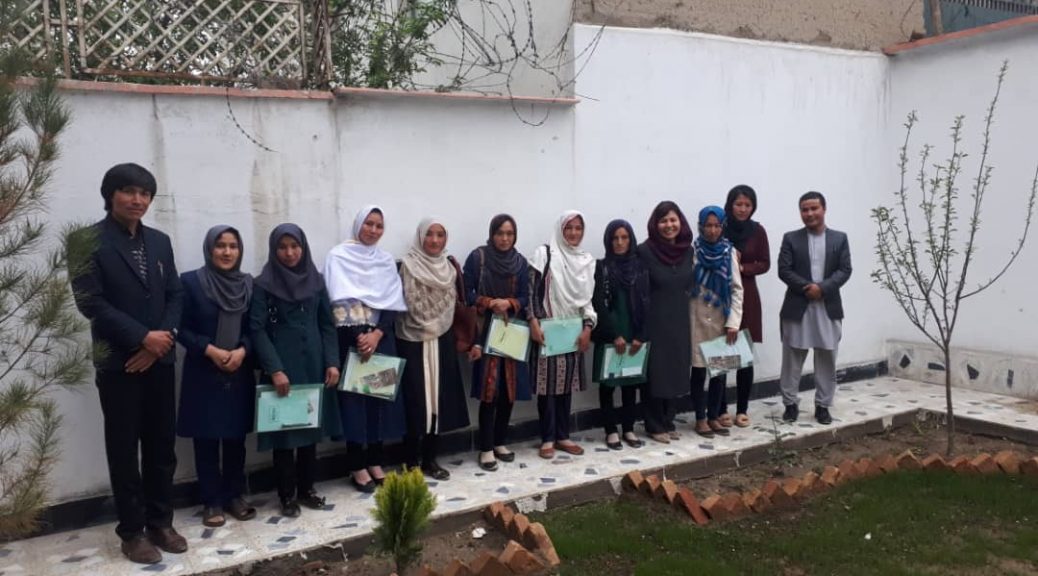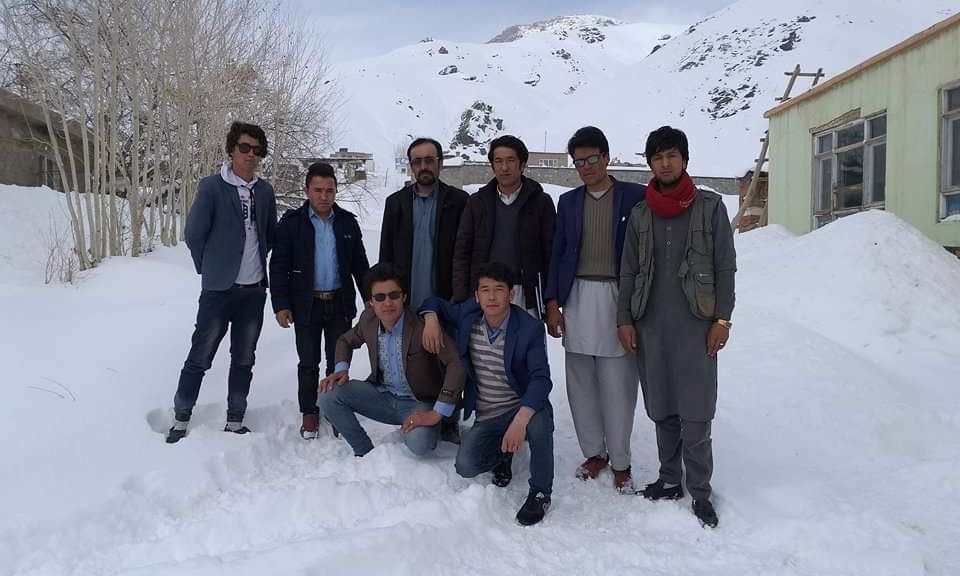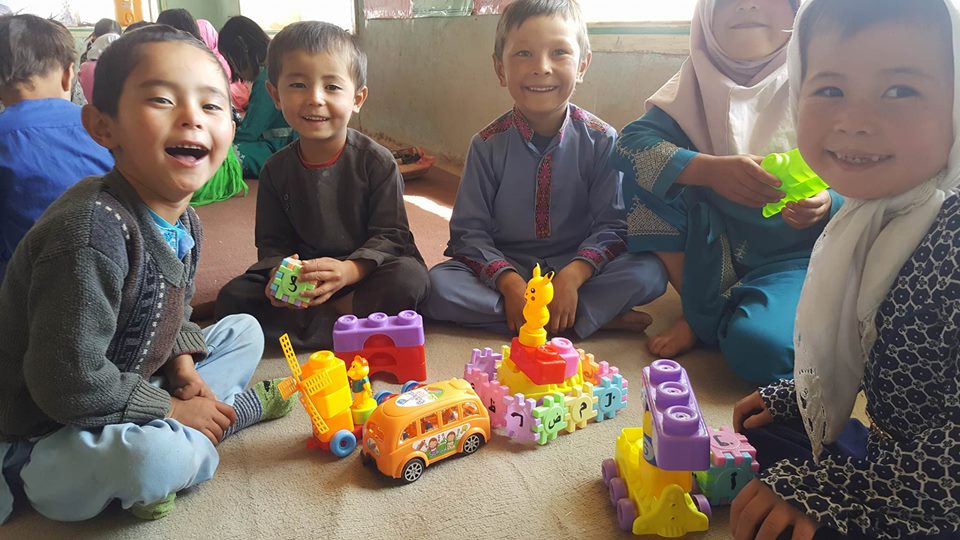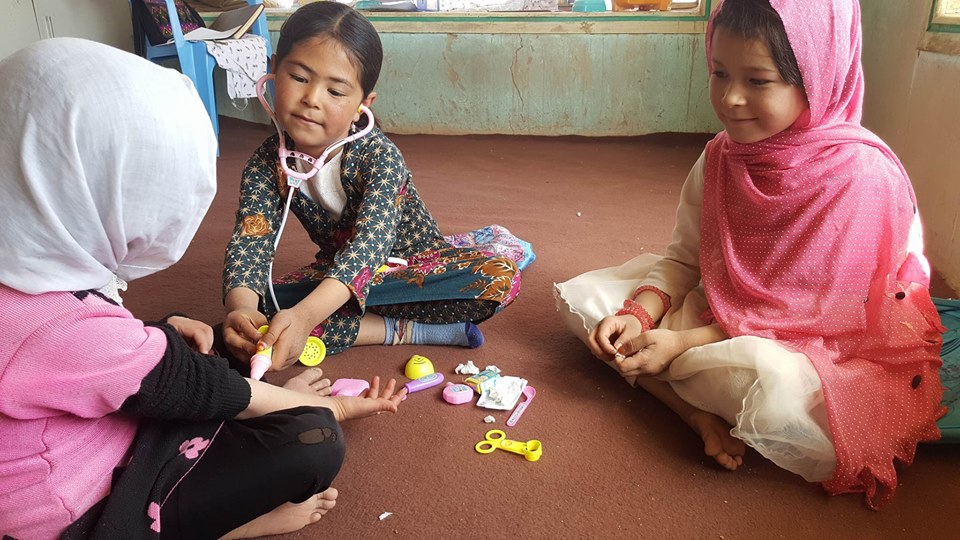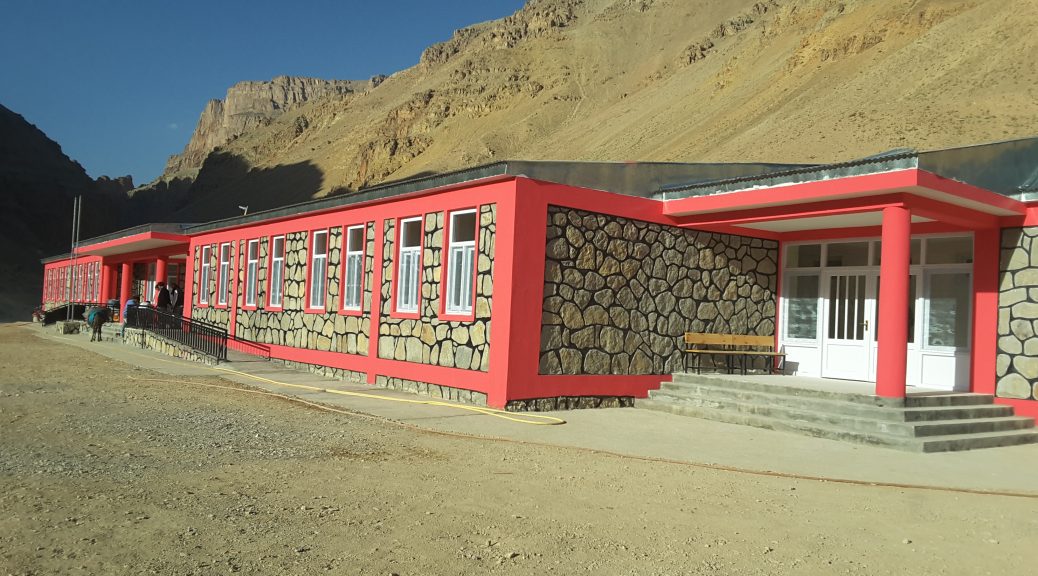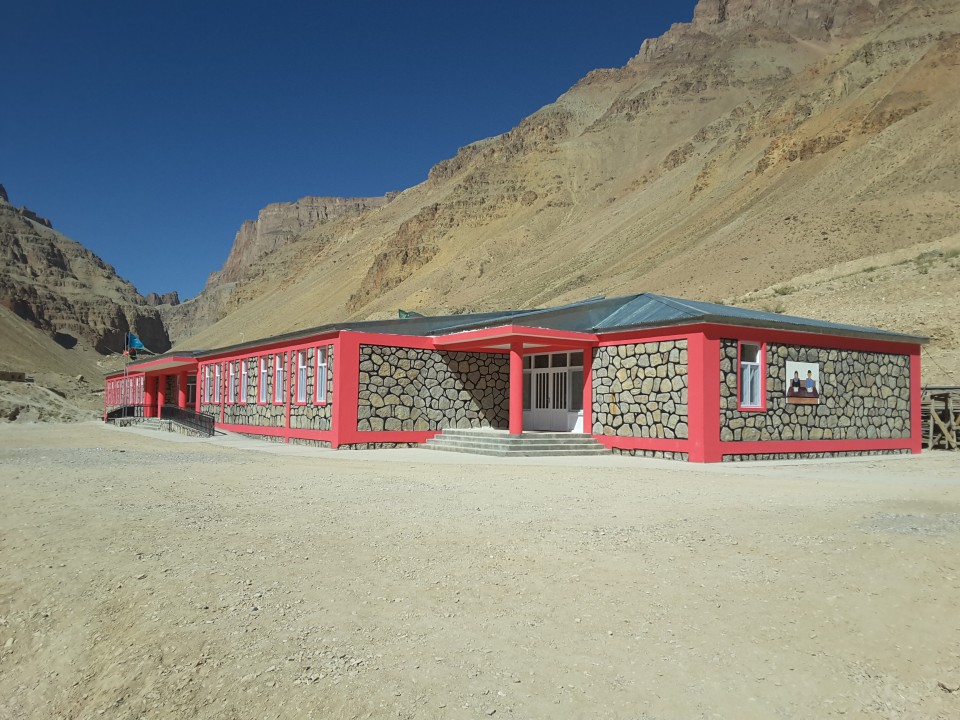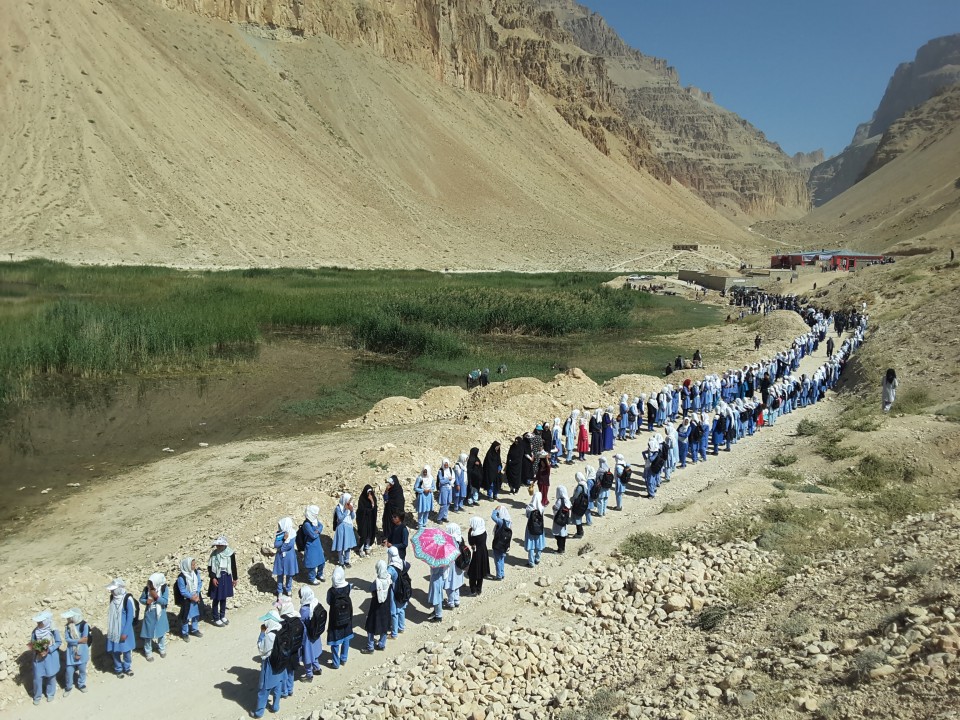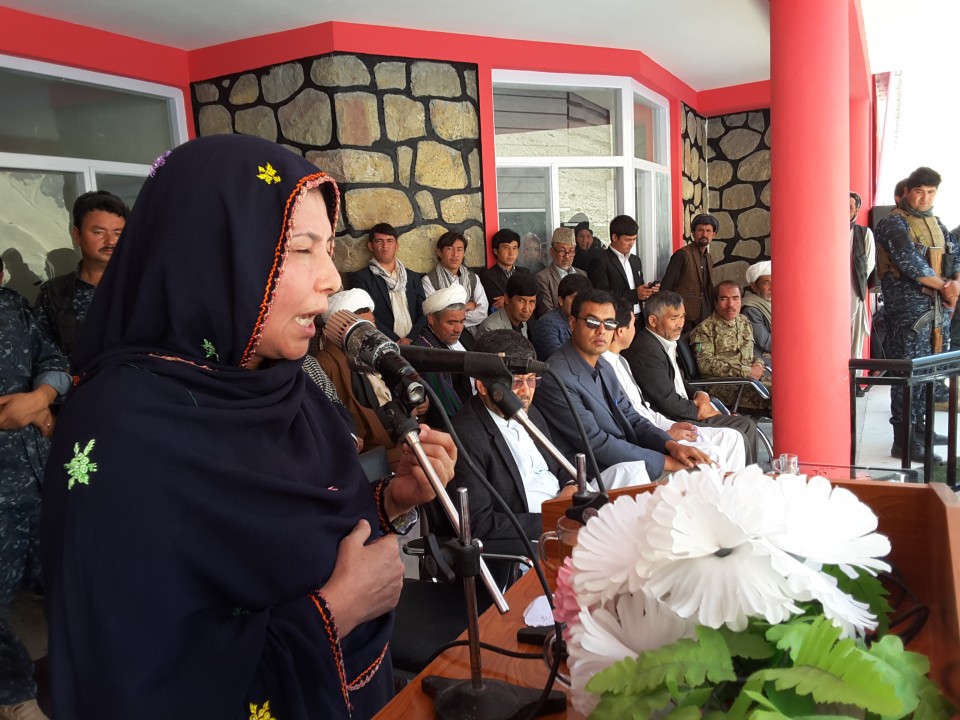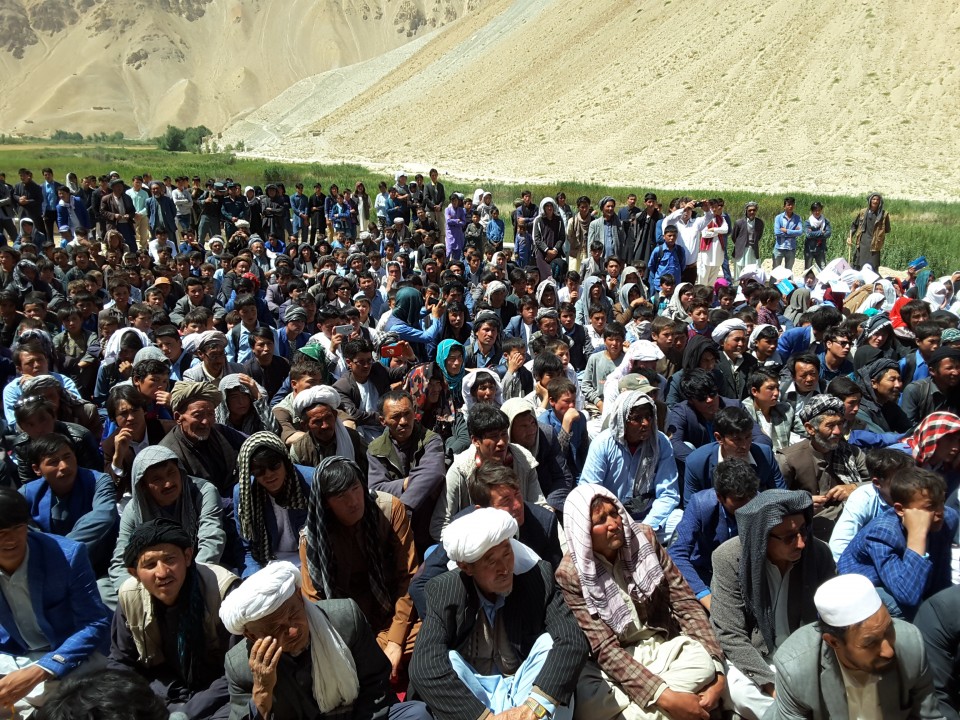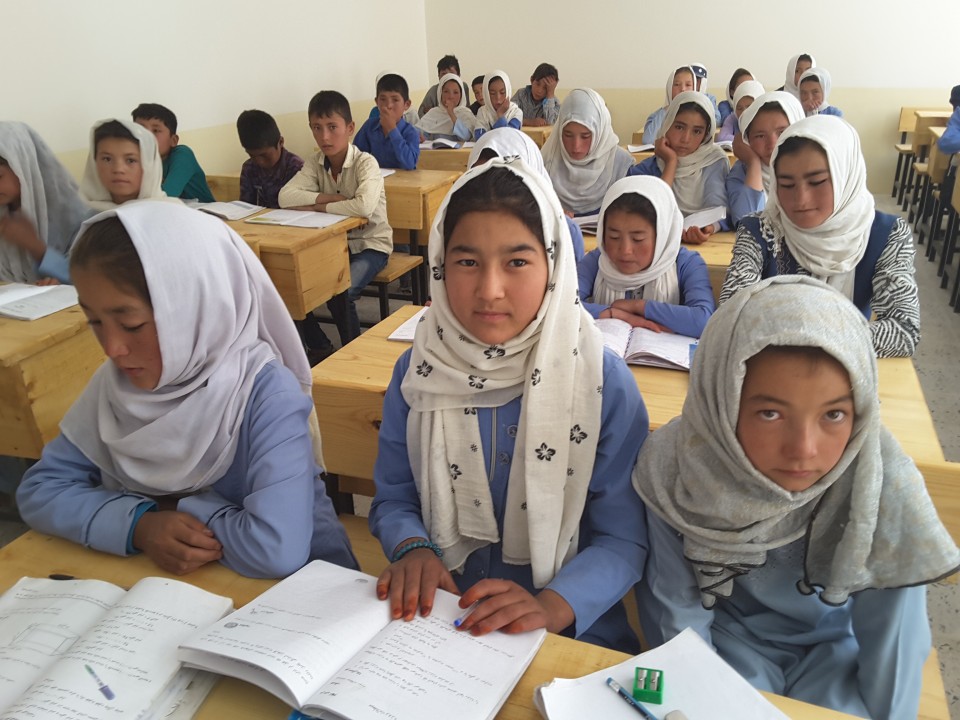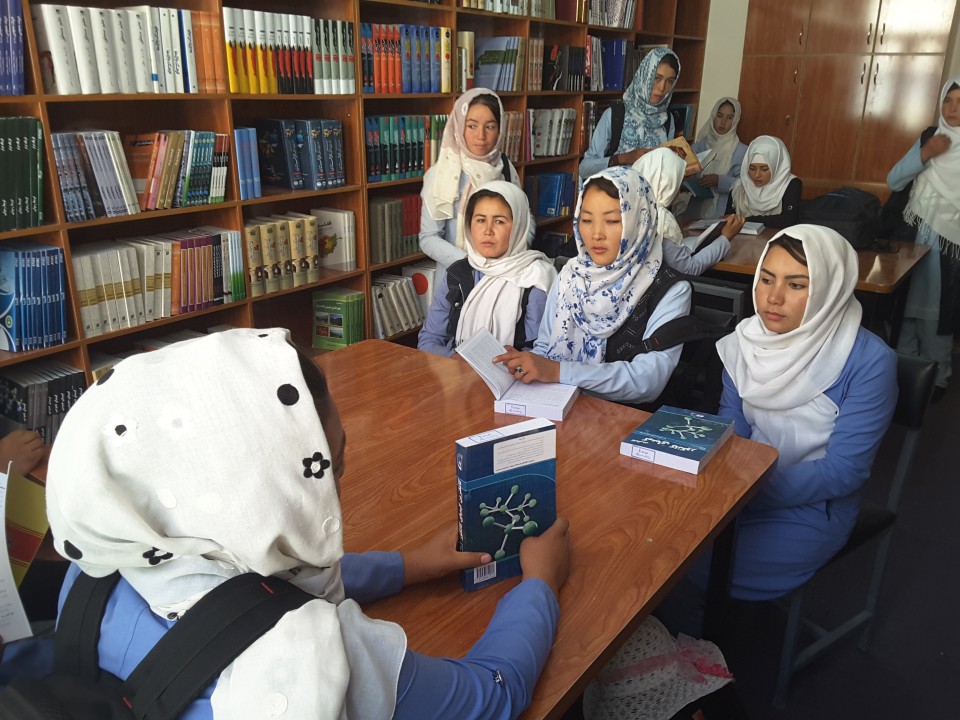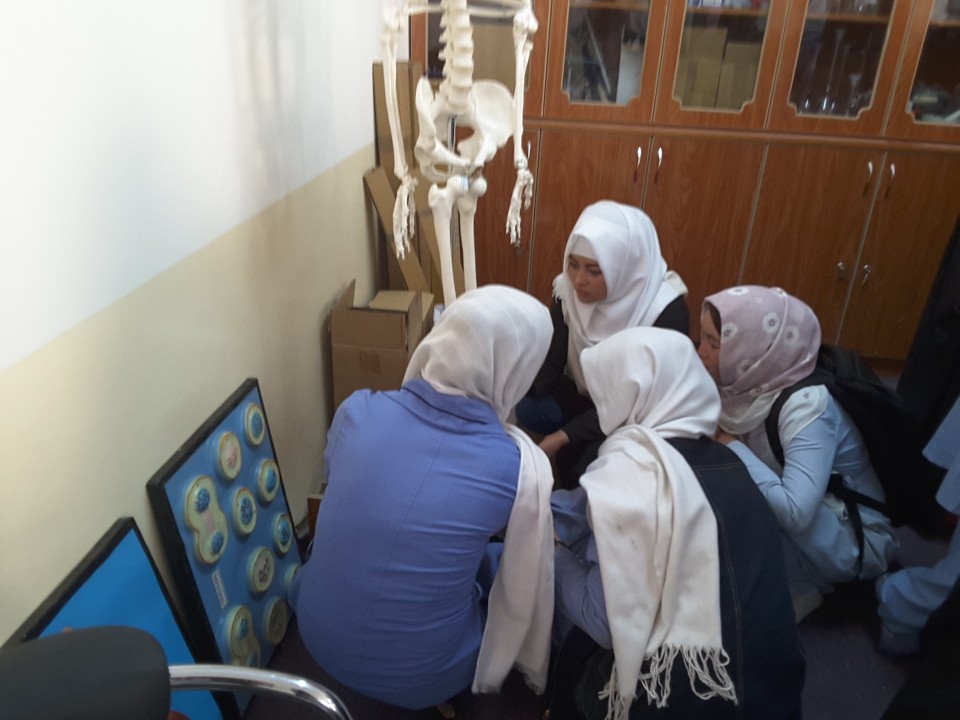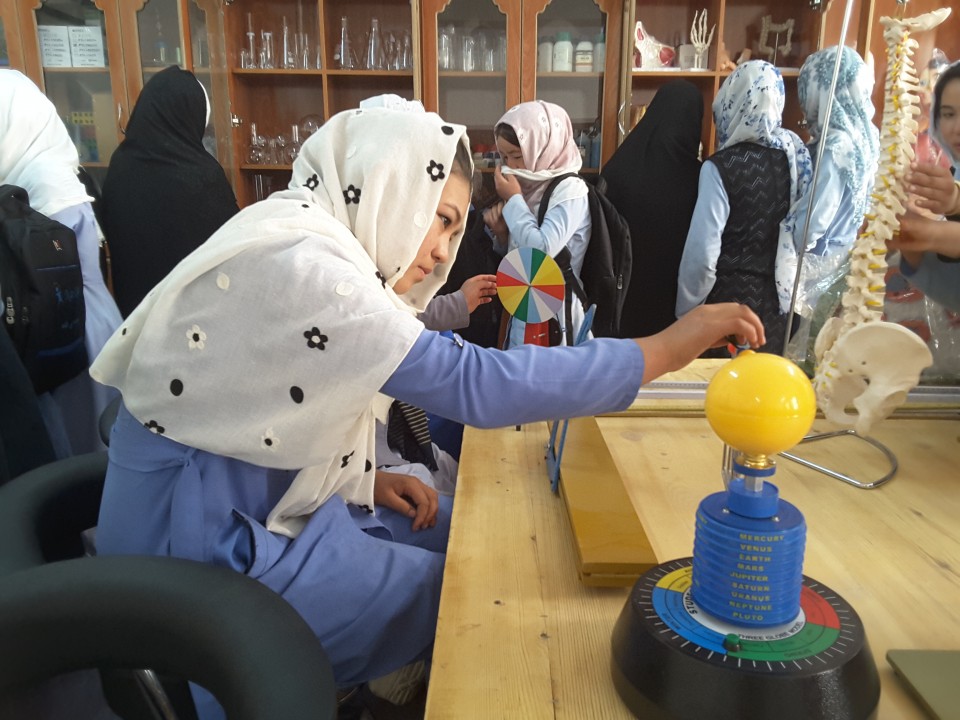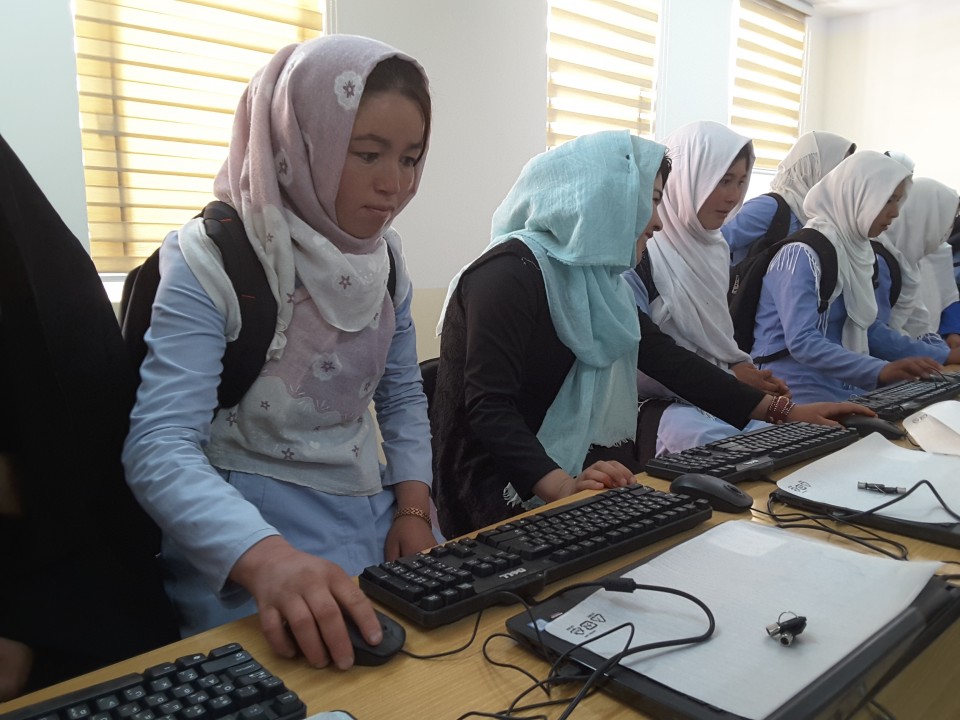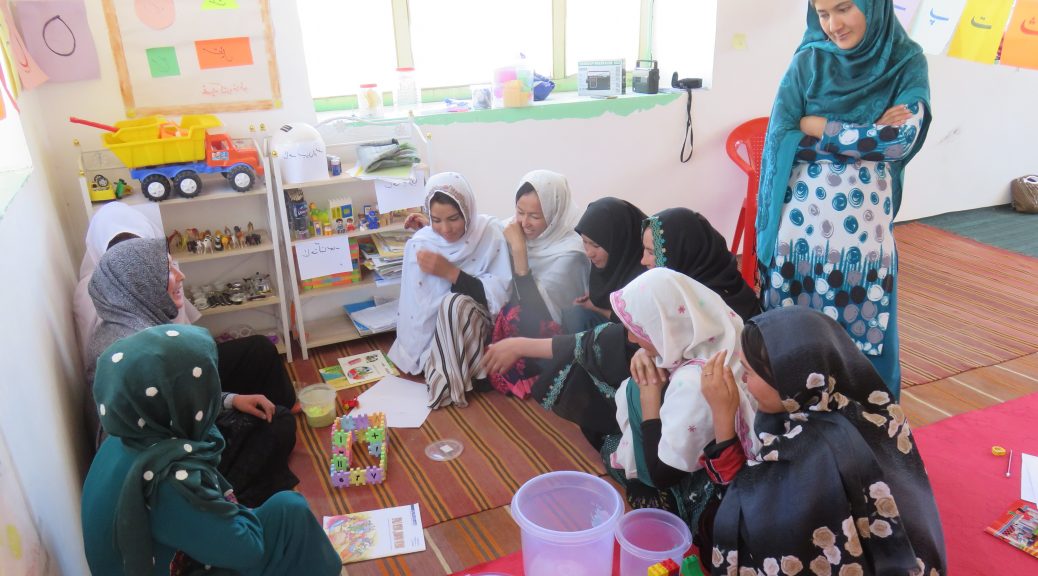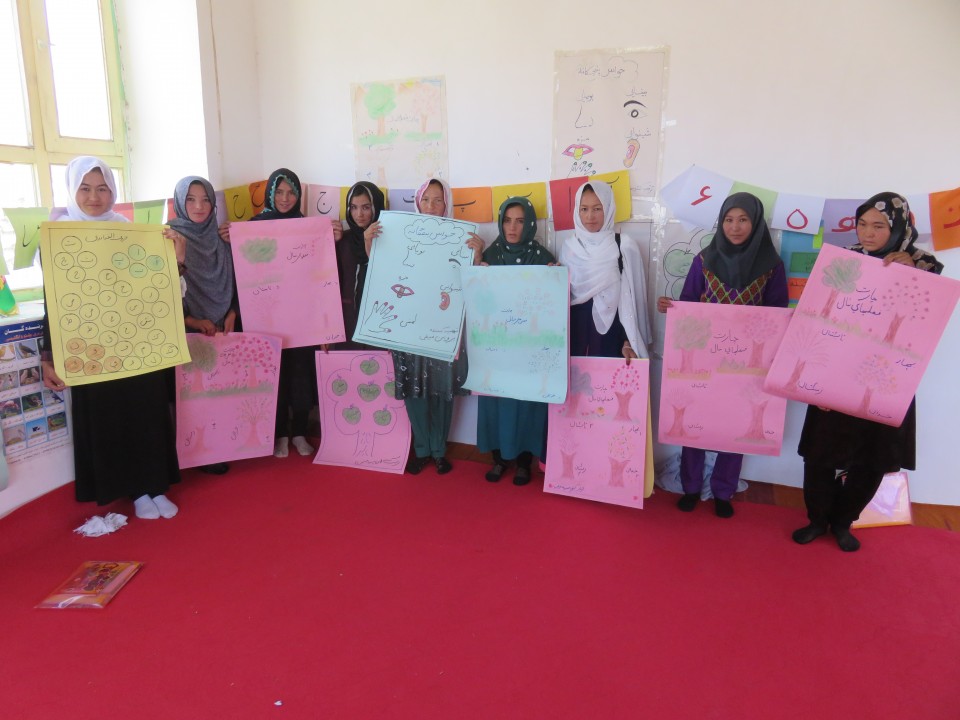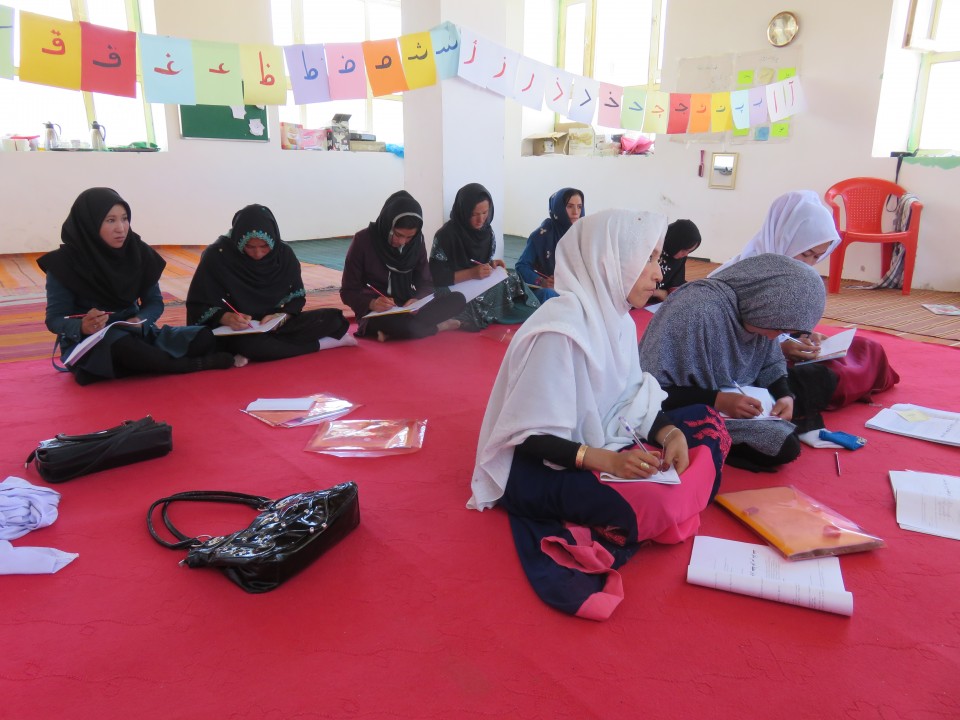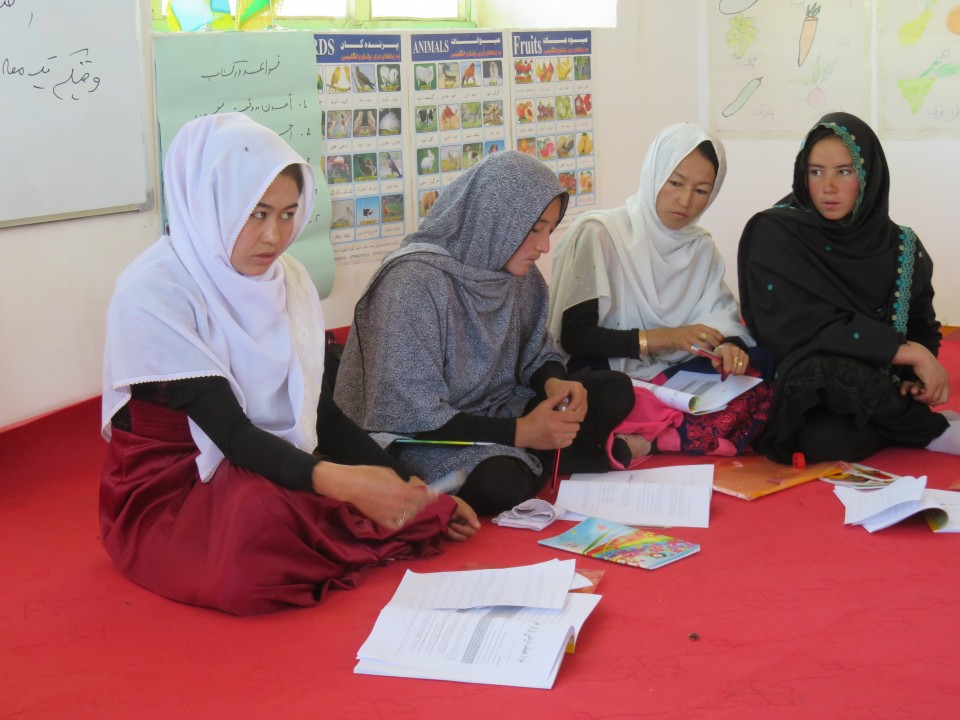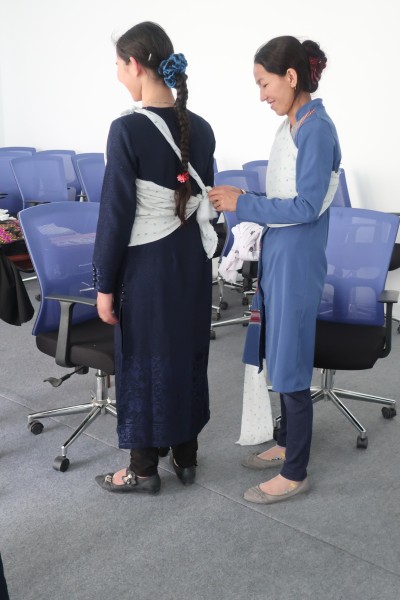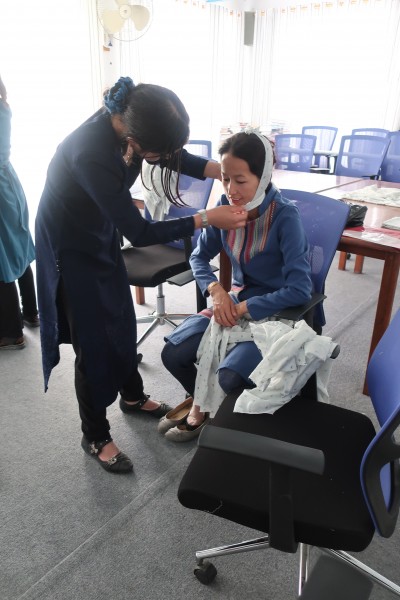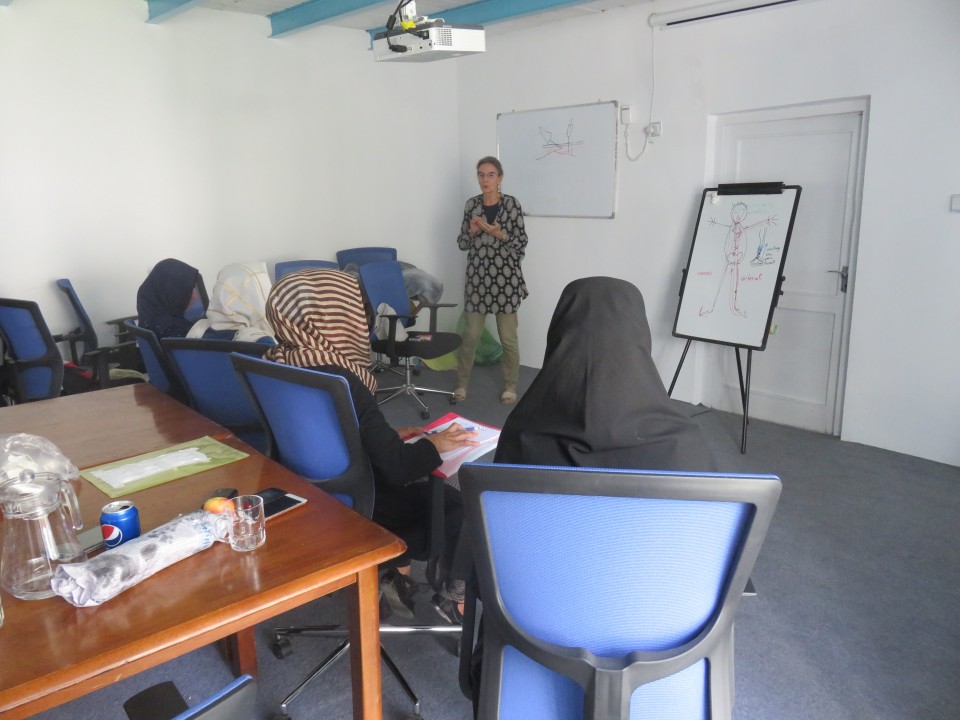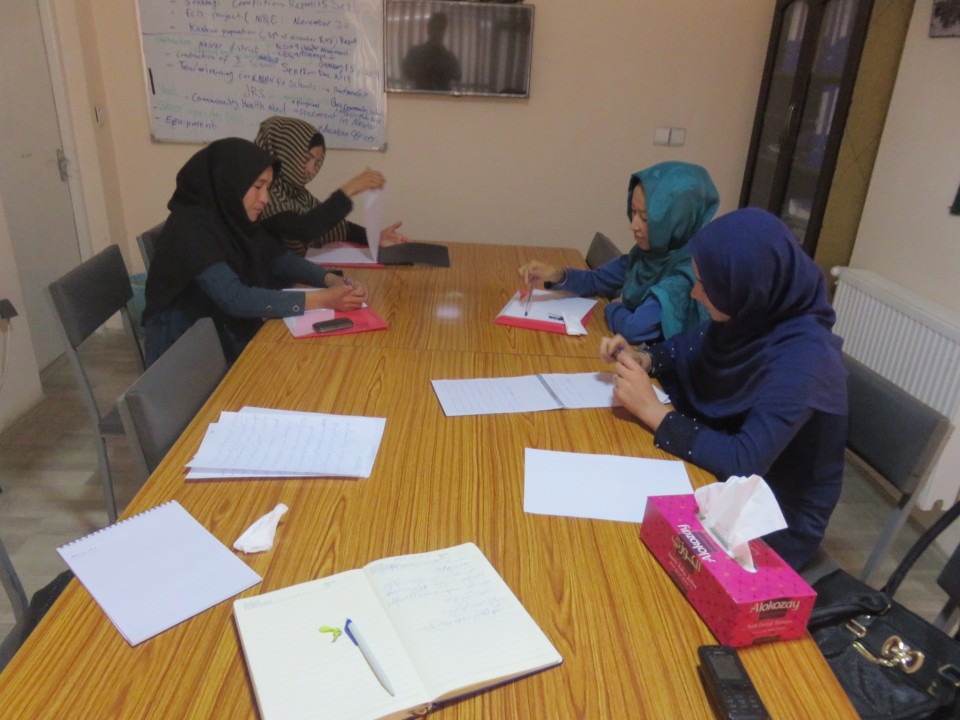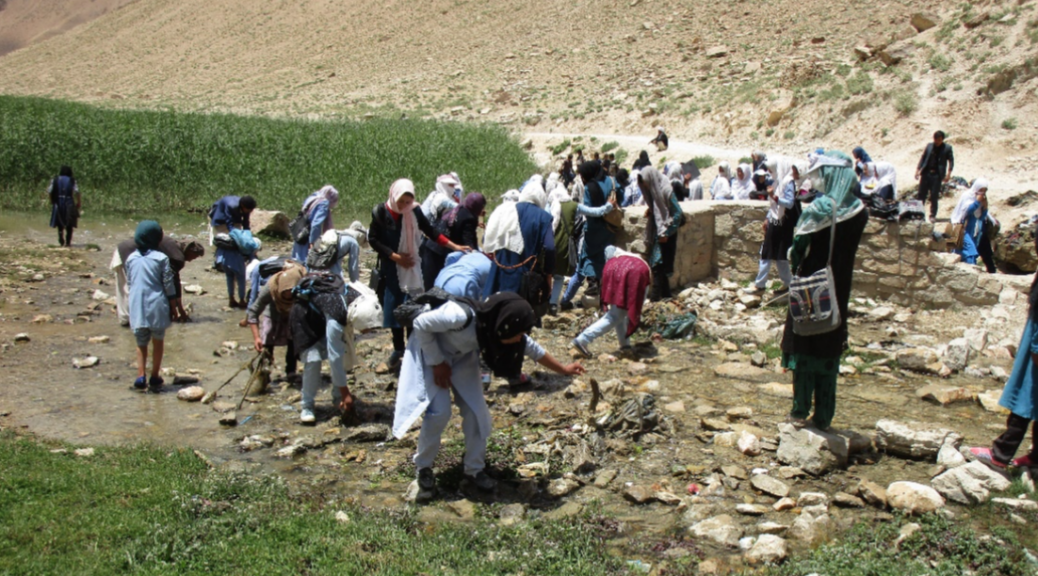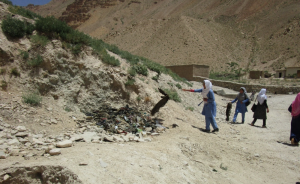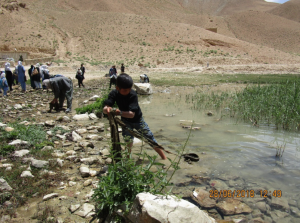Quality education, improved learning conditions and increased enrolment: objectives largely achieved for the Sokhtagi project.
Inauguration
On August 27, 2018, hundreds of schoolchildren and villagers from Sokhtagi gathered under a burning sun to unveil the new school together. This event was not only a moment of celebration, but above all an opportunity for Nai Qala to hand over the project to the community, elders, schoolchildren and their parents, as well as to local and provincial authorities. Many officials, including the Governor and the Provincial Minister of Education, honoured Nai Qala’s invitation. Nai Qala organized the ceremony and delegated part of it to a local committee composed of schoolgirls and community representatives.
The ceremony was very well balanced, mixing official parts with speeches and recreational moments: a musician playing dambura, or songs and poems specially created for the event and presented by some students. A small delegation of schoolgirls from Zeera Gag, a village where Nai Qala built a school in 2015, even traveled for more than 5 hours to bring a message of encouragement to their peers in Sokhtagi.
The project
But let’s take a small step backwards: the first stone was laid on 6 September 2017 in the presence of schoolgirls, the teaching staff, villagers and local authorities. The main objective of the project was to provide quality education, improve learning conditions and increase enrolment for girls and boys by building a fully equipped school building for 530 schoolchildren.
As soon as the project agreement was signed, people were eager to see the construction of the school begin. Consultation and coordination with the community were priorities for Nai Qala before and during construction – and even today when the school is already welcoming its students. The choice of site, then the quality of construction materials and the importance of maintenance were regularly discussed with the elders in the community. In order to reassure the provincial authorities and Nai Qala of the safety and maintenance of the school building after completion of the work, community members enthusiastically came forward to contribute, according to their abilities, not only to the construction, but also to future maintenance. As part of the agreement with the construction company, an unskilled construction labor force was hired locally to supplement the contingent of skilled workers recruited from other regions.
Given the enthusiasm of the community and Nai Qala’s commitment to high quality work, the provincial government has included the Sokhtagi School building in its development plan and has taken charge of the registration process. School management and building maintenance have been coordinated with local and provincial authorities.
The project was implemented according to schedule and specifications and was completed almost a year to the day after the work began. The result is a 16-room school building, including 9 classrooms for 530 students, laboratory and computer rooms, a library, two administration rooms and two storage rooms. The project has achieved all the objectives stipulated in the initial proposal and Nai Qala is very proud to provide a dignified school environment for schoolchildren in the Sokhtagi community.
The future
Following the inauguration of the school, a joint team of Nai Qala staff, community members, the provincial Ministry of Education and volunteers from the Rotary Club of Kabul reviewed the construction and confirmed that it was completed on time and that the project achieved all its objectives. Team members spoke with the beneficiary community, parents of school-age children and provincial authorities about the outcome of the project. The interlocutors expressed their full satisfaction and joy, and committed to take all necessary measures to maintain the school building in the best possible conditions. “Even before the school was handed over, we talked about it as if it were our own. Now it’s really ours. The entire province will be watching us. We need to show them that we can maintain our school and all its equipment – and we can do so because we are all working together today. This is just a start for us“, said one community leader.
In order to ensure the sustainability of the project, Nai Qala consulted all stakeholders to obtain their agreement. In response, the central government included the school in its national education development plan and made a written commitment to manage the school in accordance with the national curriculum, educational standards and teaching materials. The government will follow up with the community to ensure that the building is well maintained and will provide a small amount of financial assistance for repairs in the event of damage caused by snow or wind.
The community has set up a school protection committee to supervise the project and take care of maintenance in case of damage. It has also committed to hiring additional teachers in case the government does not allocate enough.
The local community and project beneficiaries (students and parents), representatives of the National Ministry of Education, the Director of the Provincial Ministry of Education and the President of the Provincial Council all welcomed the construction and full equipment of the Sokhtagi school. Nai Qala learned that the construction of the school with all its facilities, including computers for training, in this remote part of the country was a dream come true thanks to the association and its donors.
The Ministry of Education and the Provincial Ministry of Education thanked Nai Qala for implementing part of his development plan, which required a significant amount of money and technical effort. The authorities have promised to take care of the maintenance and management of the school, including the assignment of teachers.
The impact
Many tangible indicators attest to the success of the project. The initial number of schoolchildren enrolled has increased significantly as parents are now reassured of their children’s safety. In addition, many girls who had left school because they had to walk long distances to receive education in a poor quality environment resumed their studies by either joining directly the school class or a community education course in order to join the regular classes at the Sokhtagi school. After only a few weeks of operation, we can already see a significant decrease in the absenteeism rate. “We are no longer distracted by noise“, “We have the same learning conditions as in Kabul or Bamiyan“, “We never imagined that such a construction could exist” are messages that can now often be heard in Sokhtagi.
The villagers decided to allow the boys, who had to walk long distances to school in other areas, to join the girls at the Sokhtagi school where mixed classes will be created.
The arrival of a school building also has an impact on the length of the school year: due to heavy rains or snow, classes simply did not take place, shortening by a significant amount of time the coverage of the school curriculum. Teachers could not follow the annual program because classes were held outdoors and were impossible during heavy rains or snowfalls. The project will therefore allow teachers and students to complete the school program in indoor classrooms without having to deal with extreme weather conditions.
The main objective of this project was to provide quality education, improve the learning environment and increase enrolment opportunities for girls and boys by building a fully equipped school building. In view of the above, the project has already achieved all its objectives.
Thanks to Nai Qala’s projects, people in remote and excluded areas of central Afghanistan are able to build a better future for themselves. However, the greatest impact will be felt in the coming years. The people of Sokhtagi are proud of their school. They have contributed to this and the process has helped them build their confidence. Now it is up to them and their children to make good use of it.

